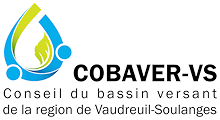WMP definition:
The Water Management Plan is a planning and decision-making tool for all water stakeholders to provide sound and effective water management by promoting the adoption of best practices based on agreed-upon local objectives and targets and by meeting the needs of the ecosystem and watershed communities.
The goals of the plan are:
- Develop priority objectives and actions aimed at preserving or restoring water use over the territory;
- Report on the state of water resources and their constraints;
- Identify the impacts of our actions;
- Ensure sustainable water supplies for the communities involved in collaboration with all stakeholders and water users in the region.
The Profile (French) is available.
A Diagnostic (French) of challenges found on the territory has been affixed to determine the impacts on our water resource and the associated ecosystems. This was developed by taking into account all data collected in the Profile as well as information gathered from consultation with stakeholders and citizens about the uncovered problems.
Stakes and Trends (French) were prioritized by stakeholders and water users.
Subsequently, objectives and performance indicators were prescribed to measure changes in water conditions and assess the effectiveness of the plan. Then, an Action Plan (French) was developed with regional agencies, which will allow improving the water-related issues identified on the territory.

